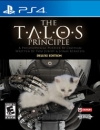Here's the thing, if you're Metacritic, and you stop counting outlier scores to the overall average, then you're basically telling those outlets that their reviews are wrong, and basically there's no point even having those review outlets represented on Meta to begin with.
If you approve a review outlet to your site, you can't then just pick and choose which of their reviews really count, and which don't. That's just nonsense.
That aside, people really shouldn't let massive outliers bother them so damn much. What does it matter if one person out of 100 or something doesn't like what everyone else likes, or is being a contrarian for the sake of it? It's not going to change your personal enjoyment of that product, or the general perception of it.
And frankly, you haven't really made it big until you have people trying to knock you down, so hell....just think of it as a compliment.
Existing User Log In
New User Registration
Register for a free account to gain full access to the VGChartz Network and join our thriving community.





















































